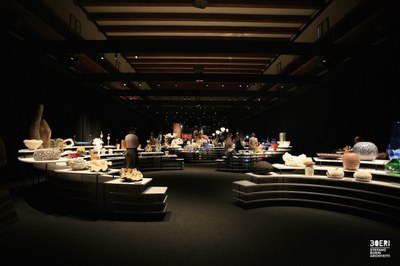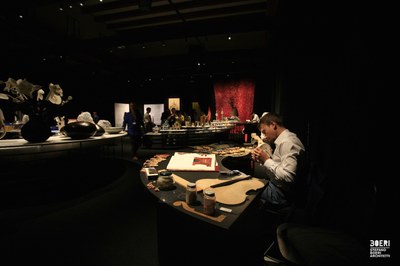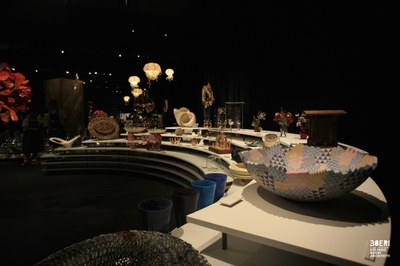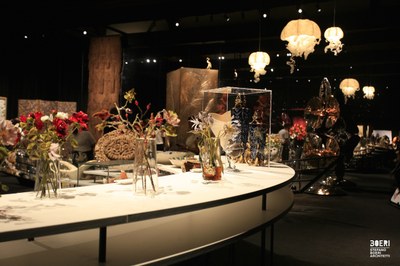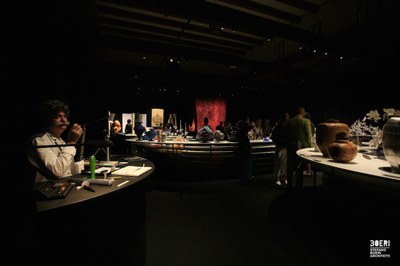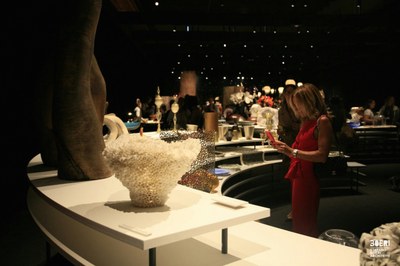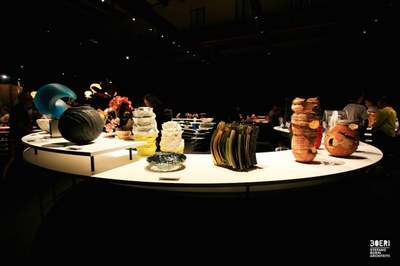Homo Faber. Crafting a more human future is the title of the new international exhibition celebrating the importance of exquisite craftsmanship: organized by the Michelangelo Foundation for Creativity and Craftsmanship (in collaboration with the Fondazione Cologni dei Mestieri d’Arte, the Fondation Bettencourt Schueller and La Triennale Design Museum) it has opened on 14 September 2018 at the Fondazione Giorgio Cini, on the island of San Giorgio Maggiore, Venice.
The show consists of a unique journey through the rich, varied creativity and craftsmanship of the finest contemporary and traditional designers and artisans in Europe today; the exhibition spreads across 16 themes that showcase a range of artisan materials, techniques and spirit while also offering the chance to explore parts of the Fondazione Cini that are not normally open to the public.
Stefano Boeri (together with Milan-based architects Giorgio Donà, Jacopo Abbate, Maddalena Maraffi, Esteban Marquez, Martina Mitrovic and Chiara Tomasin) has designed the staging for the Best of Europe show, curated by antiquarian, gallery owner, sculptor and glass expert Jean Blanchaert, in the Fondazione Cini’s Sala degli Arazzi.
This prestigious venue, which covers an area of 500 square metres and stands 12 metres tall, will play host to the works selected by Jean Blanchaert from all over Europe that represent the very best of artisan design.
Stefano Boeri explains:
“We have had to exhibit hundreds of objects of different sizes in this unique space, from very small sculptures measuring just two centimetres across to a fantastic three meters-high flower. The challenge was to design the space to appear as a whole, moving seamlessly from one exhibit to another and immersing visitors in the experience. This is why we have set the shelving parallel and at different heights: to showcase the products at a range of depths,”
The architect Giorgio Donà says:
“The room’s layout has been designed to be a box within a box through which the exhibition snakes like a ribbon, giving visitors an aesthetic experience that they are free to explore in their own time.”
The shelving is made from MDF sheets painted various shades of grey, with the darkest at the bottom and the lightest highest up to give the impression that the objects are rippling like a wave; the shelves come in seven heights ranging from 15 centimetres to 105 centimetres high and are each 15 centimetres apart.
The first three levels are all the same size while those at 45 centimetres and above have been offset to increase the depth of the display – which varies between 40 centimetres and 120 centimetres – and suggest a certain link between the objects despite their different display heights.
In conclusion, Boeri says:
“As an architect and as president of La Triennale di Milano, I am certain that this exhibition will give new impetus to the world of design and focus international attention on the relevance of craftsmanship to our world.”
The exhibition will run until 30 September 2018.


